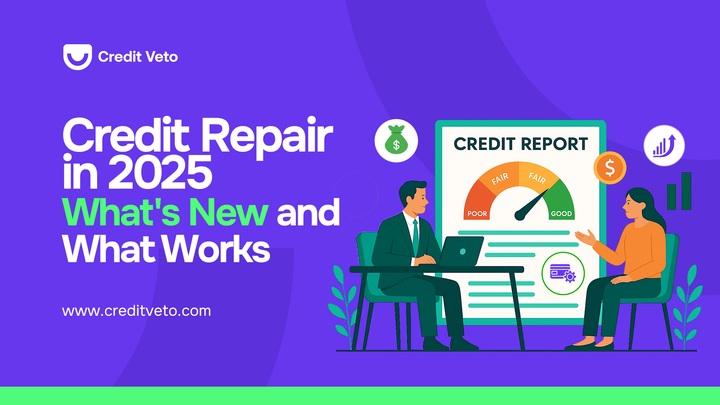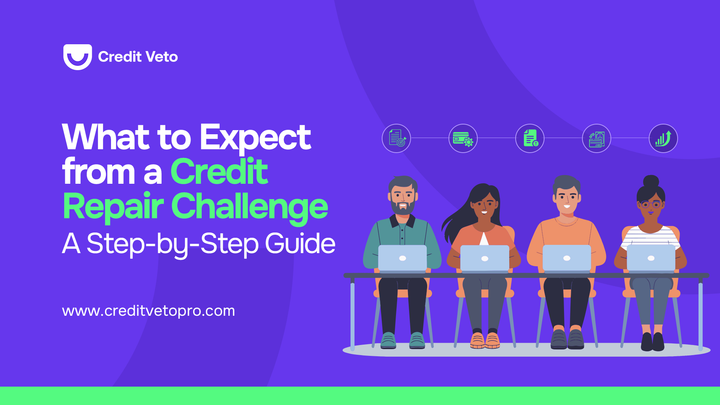Got “Unscorable” Credit? Here are 7 Best Ways to Finally Get on the Map
Lenders can’t score what they can’t see. Here’s how to fix invisible credit and start building a real score that opens doors.

Having an unscorable credit profile can be frustrating, especially when you’re trying to secure a loan, rent an apartment, or apply for a credit card. An unscorable credit means that the major credit bureaus don’t have enough information to calculate your credit score, making it difficult for lenders to assess your creditworthiness.
If you’ve been asking, “What is unscorable credit?” or “Why is my credit score unscorable?" this guide will help you understand the causes, implications, and, most importantly, how to fix it. The good news is that it’s fixable! By taking the right steps, you can establish a solid credit history and move toward financial stability.
In this guide, we’ll explore what makes a credit profile unscorable, why it happens, whether it’s bad, and what you can do to get back on track.If you're struggling with an unscorable credit, Credit Veto can help you start building a strong credit history and regain control of your financial future. Keep reading to learn how.
What Is an Unscorable Credit?
An unscorable credit refers to a credit report that doesn’t contain enough recent credit activity for a credit scoring model to generate a score. The most common scoring models, such as FICO and VantageScore, require a minimum amount of credit history to calculate a score. If your credit report lacks sufficient data, you’ll be considered “credit invisible” or “unscorable.”
Why Is My Credit Score Unscorable?
If you’ve checked your credit report and found that you have no score, you might be wondering, “Why is my credit score unscorable?” Several factors can contribute to this, including:
- Limited Credit History – If you’ve never had a credit card, loan, or other forms of credit in your name, there’s no data for credit bureaus to use in calculating your score.
- Inactive Credit Accounts – If you had credit accounts in the past but haven’t used them in a long time, they may no longer be contributing to your score. Most credit models require at least one active account in the last six months to generate a score.
- Young Age or Recent Immigration – Young adults or recent immigrants who haven't established credit in the U.S. often face an unscorable credit profile.
- Use of Only Non-Reported Financial Products – If you primarily use debit cards, prepaid cards, or cash, those activities don’t get reported to credit bureaus, leaving you with no credit history.
- Errors or Missing Information – Sometimes, credit report errors or identity thefts and mix-ups can lead to a lack of credit data being recorded under your name.
Is Unscorable Credit Bad?

While an unscorable credit isn’t the same as a low credit score, it can still pose challenges. Many financial institutions use credit scores to determine eligibility for loans, credit cards, and even rental applications. If you don’t have a score, you may be denied credit or forced to accept higher interest rates and less favorable terms.
However, being unscorable is not a permanent problem. With the right steps, you can build credit and establish a scorable profile in as little as a few months. The key is to create a trackable history of responsible credit use.
7 Best Ways to Fix an Unscorable Credit
While there are several ways to fix an unscorable credit, here are the top 7 you can’t do without if you want your credit to become scorable again..
1. Apply for a Secured Credit Card
A secured credit card is one of the best ways to start building credit. It requires a refundable deposit, which acts as your credit limit. By using the card responsibly and making on-time payments, you can establish a positive credit history that will be reported to the major credit bureaus.
2. Become an Authorized User
If you have a family member or close friend with a good credit history, ask them to add you as an authorized user on their credit card. Their positive payment history will be reflected on your credit report, helping you gain a score more quickly.
3. Take Out a Credit-Builder Loan
Credit-builder loans are specifically designed for individuals with little or no credit history. These small installment loans help you establish a payment record, which can contribute to your credit score over time.
4. Ensure Your Bills Are Reported to Credit Bureaus
Traditional bills like rent, utilities, and phone payments are not always included in your credit report. However, some services allow you to report these payments to credit bureaus, helping you build a scorable credit history.
5. Use a Retail or Store Credit Card
Retail credit cards are often easier to qualify for than traditional credit cards, making them a good option for those looking to establish credit. Just be sure to use them wisely and pay off balances in full to avoid high-interest charges.
6. Avoid Closing Old Accounts
If you have any old credit accounts, try to keep them open and active. Length of credit history is a factor in credit scoring, so maintaining older accounts can help you establish a stronger profile.
7. Monitor Your Credit Report for Errors
Sometimes, credit files are incomplete due to errors or missing information. Regularly check your credit report for inaccuracies and dispute any errors with the credit bureaus to ensure your data is correctly recorded.
How Long Does It Take to Become Scorable?
The time it takes to go from unscorable to having a credit score depends on how quickly credit data is reported. Generally, you can expect to have a scorable credit history within three to six months if you actively use credit responsibly. The key is consistency—making on-time payments and maintaining low balances will help you establish a positive credit profile.
How Credit Veto Can Help You Fix an Unscorable Credit
At Credit Veto, we specialize in helping individuals with unscorable credit build and repair their credit profiles. Whether you're just starting or struggling to establish a credit history, our flat-rate credit repair packages offers:
✔ Personalized Credit Consultations to assess your unique situation
✔ Dispute Resolution to correct any errors affecting your credit report
✔ Credit-Building Strategies tailored to your financial goals
✔ Access to our 90-Day Free Credit Repair Starter Pack to help you take the first steps toward a better financial future and many more!
Don’t let an unscorable credit hold you back from achieving financial success. Sign up today with Credit Veto and start building a strong credit profile that opens doors to better opportunities.
Final Thoughts
Having an unscorable credit doesn’t mean you’re out of options—it simply means you need to take proactive steps to build a credit history. Whether you’re applying for a secured credit card, becoming an authorized user, or ensuring your payments are reported, every step counts toward making your credit profile scorable.
If you’re unsure where to start or need expert guidance, Credit Veto is here to help. Book a consultation with us today and take control of your financial future today!




Comments ()